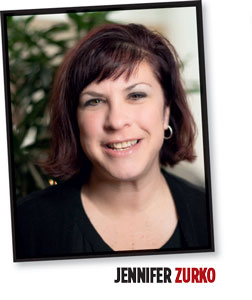6/30/2025
Sometimes You Need a Doctor
Jennifer Zurko

If you’re someone of a certain age or love classic comic strips, you might have recognized the title of my cover story this month.
Whenever Charlie Brown needed some life advice, he would shuffle over to Lucy’s makeshift “Psychiatric Help” booth and wait for her. When she saw him, she’d dash over and flip the sign over to read “The Doctor Is In.” Granted, her approach to therapy teetered between tough love and tactless insults. She was also the same way as a placeholder for when Charlie Brown went to kick the football. Our expectations for Lucy only went one way.
It came to me when I started writing my article. We’ve been discussing the idea of doing a story on the Ball Helix Diagnostic Lab for about a year. And the main reason is because of Ball Publishing’s proximity to Ball Seed’s Technical Services team. Bill Calkins, our digital and senior editor, works very closely with the four gentlemen who answer your phone calls, emails and Facebook inquiries, and come to your greenhouse to help you with a problem. Bill is the disseminator of all of the knowledge and information the tech services team gathers every season through his Tech On Demand newsletter, podcasts, videos and social media posts. Technical services is there to not only answer your questions, but to help you avoid major problems.
But as we all know too well, sometimes the problems are unavoidable. Sometimes there are emergencies that need special attention, so Ball Seed customers have the option of sending in plant samples to Ball Helix to have them tested by the diagnostic lab. It’s a great service that Ball has been providing to growers for years.
Even though I work in the building and have walked past the lab many times (they’re a very quiet group—they must be serious scientists or something) I’d never been inside to see what they do. And I don’t think the industry as a whole knows about the investments Ball has made over the years in biotechnology, research and breeding, so I wanted to tell that story.
My “science background” culminated with the one Biology class I took in college (I did get an A, though), so I wanted to make sure that I learned and understood what they do in the lab. Equating what they do with sick plants to what happens when a human gets sick helped. Sometimes the symptoms are obvious; sometimes they aren’t. Sometimes your diagnosis isn’t that severe—is it high cholesterol you can control with diet and medication? Or is more serious? Sometimes you can treat yourself; sometimes you need to see the doctor. The diagnostic team are the plant doctors. And the doctors are in, whenever you need them.
Speaking of doctors, we have two of the economic kind who have tag-teamed to pen an op-ed on how the recent policies on trade can affect our economy. Dr. Marvin Miller and Dr. Charlie Hall discuss this and also give us a little background on how trade became so important to the U.S. economy.
We editors aren’t doctors, but we are experts at covering the California Spring Trials (Bossman Beytes has been doing it for 30 years!). As we have for years, the first part of our CAST coverage starts this month with all of the new introductions in annuals we saw. You can also see the ones we thought would be great for retailers on the Green Profit side.
Lucy may not have been the most effective therapist—Charlie Brown never seemed to shake out of his endearing funk. But she was the one who told him he needed a project to keep his mind off of his Christmas malaise. If it wasn’t for her, we wouldn’t have had “A Charlie Brown Christmas” with one of the best holiday soundtracks on the planet. For that, we can at least be grateful the doctor was in that day. GT